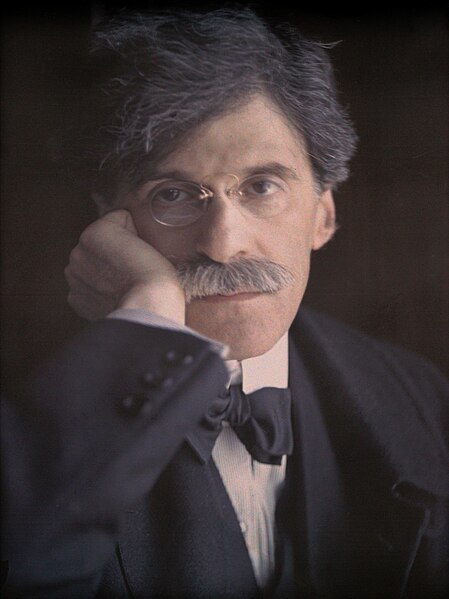Fanfare for the Common Man
Fanfare for the Common Man is a musical work by the American composer Aaron Copland. It was written in 1942 for the Cincinnati Symphony Orchestra under conductor Eugene Goossens and was inspired in part by a speech made earlier that year by then American Vice President Henry A. Wallace, in which Wallace proclaimed the dawning of the "Century of the Common Man".
Copland in his creative office
Henry A. Wallace's speech proclaiming the "Century of the Common Man" inspired Copland's fanfare.
Initial trumpet notes from Fanfare for the Common Man, Copland Memorial Garden, Tanglewood
Aaron Copland was an American composer, critic, writer, teacher, pianist and later a conductor of his own and other American music. Copland was referred to by his peers and critics as the "Dean of American Composers". The open, slowly changing harmonies in much of his music are typical of what many people consider to be the sound of American music, evoking the vast American landscape and pioneer spirit. He is best known for the works he wrote in the 1930s and 1940s in a deliberately accessible style often referred to as "populist" and which the composer labeled his "vernacular" style. Works in this vein include the ballets Appalachian Spring, Billy the Kid and Rodeo, his Fanfare for the Common Man and Third Symphony. In addition to his ballets and orchestral works, he produced music in many other genres, including chamber music, vocal works, opera and film scores.
Aaron Copland
Aaron Copland School of Music, Queens College (part of the City University of New York)
Nadia Boulanger in 1925
Copland admired the work and philosophy of Alfred Stieglitz






